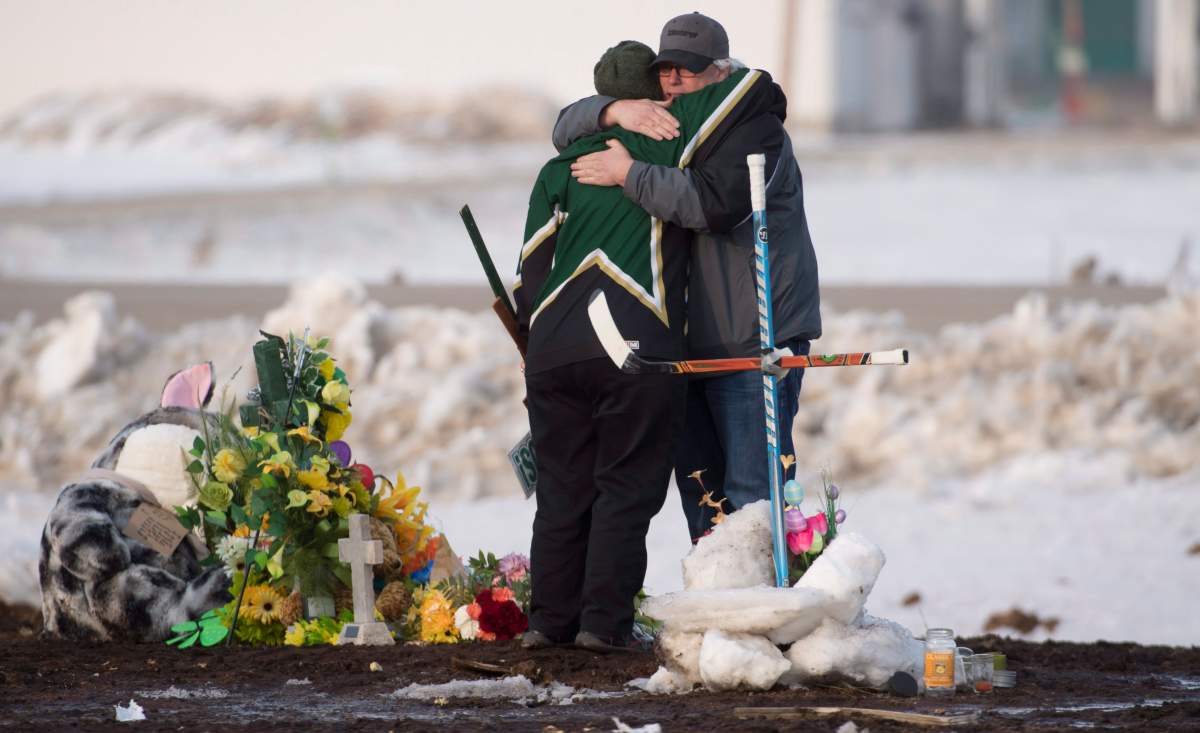This column, like some others posted in the era of social media, needs to begin with a tweet.

On April 7, the Saturday morning after the big wreck on Saskatchewan’s Highway 35, I tweeted a photo of a Humboldt, Sask., teenager named Brody Hinz, who was among those killed in the bus-truck crash none of us will ever forget.
Underneath the photo of Brody, I captioned the following: “Nobody loved the #HumboldtBroncos more than Brody Hinz. … Thank you forever, Brody.”
One of my followers, Bruce Holmquist, posted a response:
And I responded with:
And that was the start of just another Canadian conversation on Twitter, one that sparked millions of other conversations about big things that really matter — and some little things that matter only a little bit.
These discussions are no different than the chats we often have at the local diner or coffee shop, except that sometimes our sticks get a little above our shoulders. When there are no refs, it can get ugly. But that generally happens when the talk gets political.
I found the Twitter talk I was having about Humboldt so much more important than politics, that I decided to put politics on hold. I tweeted this.
I knew by the reaction to that tweet that some kind of special connection was being made. As of this writing, the tweet has received over 216,000 impressions. What was in that simple message that resonated with so many people? Was it the simple decision to dump politics for one lousy news cycle and focus on kids, and coaches and families and hockey and a Canadian town that everybody wanted to call home?

Get daily National news
I’m neither a social scientist nor a psychologist. I’m a conversationalist. I talk to folks. Mostly what I do is listen to folks, feel their messages as best I can and then pass them on to other folks. I’m sort of Facebook without all the bells and whistles and privacy invasions.
But after spending five or so minutes staring at that tweet, which kept getting click after click at a furious pace, it occurred to me that there was a hunger in the country for more Humboldt and less politics, more unity and less conflict, more community and less solitude.
Humboldt, Sask., represents the Canada that many of us grew up in and most of us are still attached to. We can’t call it mythical because it’s still there. The town with a couple of small churches, a diner, a grocery store, a lounge, a community hall, and a rink. There’s always a Canadian flag flying high and families raising money for some worthy community cause. There are always a couple of old timers hanging around reminding us what life was like when respect for family and neighbourhood and service weren’t just things that sociologists and anthropologists wrote about in their PhD papers.
I don’t pretend to know all there is to know about why Canadians adore their country. But what I do know is more than $7 million was raised in five days in a GoFundMe campaign for Humboldt.
On Monday, everybody was talking about a sermon a pastor delivered on a Sunday in a hockey rink in the middle of the Canadian prairie. And while people were listening to his talk about family and kids and the Lord, nobody was thinking this is happening in the middle of nowhere. We were somewhere special. We were in Humboldt, Saskatchewan, Canada.
No beaches, no palm trees, no movie stars. But for a few of the important moments in our lives when we are willing to be honest with ourselves about life and death and family, there was nowhere else we would rather be.
We are all Humboldt, Saskatchewan Canadians.
Charles Adler hosts Charles Adler Tonight on Global News Radio 980 CKNW Vancouver, Global News Radio 770 CHQR Calgary, 630 CHED Edmonton, Global News Radio 680 CJOB Winnipeg, Global News Radio 640 Toronto, Global News Radio 980 CFPL London, and soon, CHNL Kamloops, from 7-10 p.m. PT. He is also a columnist for Global News.








Comments